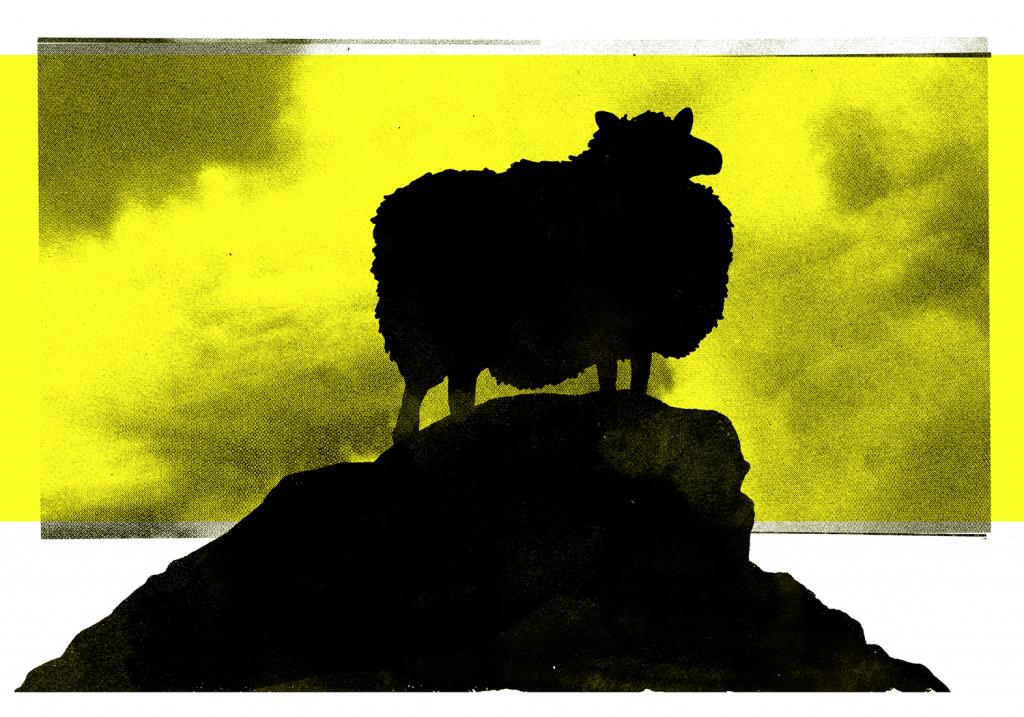
The first reading for the First Sunday of Advent (Is 63: 16b-17, 19b; 64:2-7) begins benignly enough:
You, Lord, are our father, our redeemer you are named forever.
The line evokes a comforting certainty—I may not understand much else that’s happening right now (in my nation, my diocese, my extended family, etc.), but I know you, Lord, are our “redeemer,” “our father . . . forever.” Lines like this make reading some Advent Scriptures feel like being wrapped in a warm blanket and tucked into bed by a cherubic angel/God figure. I have to admit, I love these lines and the burden they lift from my psyche.
But I’m transported from my hygge-laden reverie as early as the next line.
Why do you let us wander, O Lord, from your ways, and harden our hearts so that we fear you not?
I think a lot of us here at Sick Pilgrim have been asking a very similar question for the last couple of weeks. Recent experiences in our writing community have reminded us that yes, sometimes an encounter with God brings peace, fulfillment and joy. And other times an encounter with the Living God (and his people) is about rending your fucking garments, sometimes literally.
Allegations of abuse and misconduct brought by numerous women against the ousted co-founder of Sick Pilgrim have left many of us confused and bereft. While the vast majority of us have taken courage (and even a new sense of empowerment) from the way the blog’s administrators have handled the situation, we don’t like to see people hurt. Nor do we enjoy seeing people excluded. Witnessing the very real need to remove an alleged predator from our ranks is wrenching. Yet many of us have also experienced abuse in some form, and know all too well how important it is to protect oneself (as well as vulnerable others).
For my own part, I can pinpoint with certainty times, places, whole spans of life where I have “wandered far from the Lord’s ways.” How do I reconcile my own need for mercy, for the “field hospital” described by Pope Francis, with my simultaneous need to set up boundaries, even walls, around those who would harm me?
This has been an issue for me for years. When I first brought the seeming paradox up to my therapist, she tried to help me understand it in terms of a playground.
“It’s not that these people are irredeemable—you’re not making a value judgment on them. But they’re not healthy for you, so you don’t let them into your playground. It’s as simple as that. You only let people in your playground who treat the equipment with respect.”
“But we’re all connected in the Mystical Body of Christ!” I shrieked. “How can I separate them or cut them off when we’re intrinsically one?”
I still don’t have an ontological answer to that, but luckily my practical capacities for self-care have improved in spite of the theological difficulties.
And really, we do have precedent for this need for prudence and care for the vulnerable, even in Scripture. John 10:12 describes the need for a “Good Shepherd,” rather than a “hired hand” to guard the sheepfold, because the hired hand won’t keep the sheep safe from the wolf who aims to destroy them.
Thinking a little more deeply about the parable of the Good Shepherd, there’s a sheep who goes astray, and the Good Shepherd leaves the 99 to bring the little straying sheep home. There is great love and value placed on that straying sheep, even though it has, ostensibly, “sinned,” “missed the mark,” etc.
But then later in the parable we meet a wolf, and the Good Shepherd sees to it that the wolf is banished. He’s kept out of the sheepfold.
Now, we might be tempted to ask, what’s the difference between the sheep and the wolf? Why can the sheep “go astray” and not only be welcomed back, but sought after, while the wolf is immediately driven out?
The difference is safety. The Good Shepherd is making a prudential judgment, not a moral one. He isn’t saying the sheep is more loved or valuable than the wolf, or that because the wolf sought destruction, it is beyond hope. The shepherd simply has the insight to realize that without separating the wolf from the sheep, the sheep will be completely destroyed, and the wolf will end up consumed by its basest instincts. They both need and deserve better.
That sheepfold needs to be a safe space, even if every single one of those hundred sheep end up “going astray.” The issue is not about the Shepherd only loving sheep, or giving a free pass to the sheep’ s straying while condemning the wolf’s predation. It’s about creating the conditions for the possibility for all of them to thrive and find that promise of the first line of our reading, a God who is both “father” and “redeemer” “forever”.
A good father protects us and keeps us safe. And a redeemer pulls us away from the places where we fall into destruction of ourselves and others. We Catholics have traditionally called these “near occasions of sin.” Whether we need a father or a redeemer on any given day, we need to understand that both act in mercy. We need to be lifted up and out of sin that will destroy us, whether we are doing the sinning or experiencing the effects of others sins.
So yes, the Church is a field hospital, and Sick Pilgrim is, at least in part, a place for the spiritually estranged. But a hospital has many floors. Sometimes it’s not healthy for all our illnesses to occupy the same wing. If a contagious and predatory bug starts taking out some of the patients, the hospital isn’t working.
So onward, Sick Pilgrims. With a secure sheepfold guarded by the Shepherd, we’ll find our healing yet.
Holly Mohr is an attempted unifier, bridger (but sometimes creator) of chasms, and truth-seeker living in Pittsburgh, PA. She’s trying really freaking hard to learn how to love well, but probably not hard enough. She seeks to build a coherent reality between her work in ministry, her efforts with Eric to raise peace-loving, justice-seeking children, and her own wholeness of spirit.












